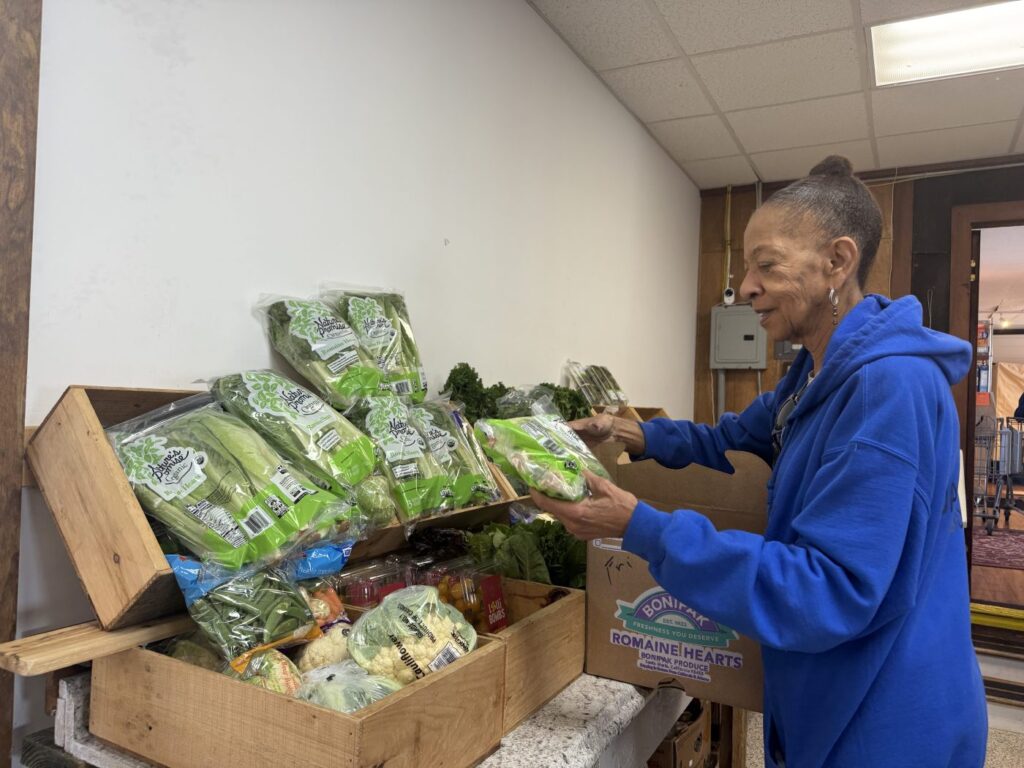
In Accord, New York, food pantries are experiencing heightened demand as residents face uncertainty surrounding their Supplemental Nutrition Assistance Program (SNAP) funding. The Town of Rochester Food Pantry reported a significant surge in visitors, reflecting the broader challenges posed by the ongoing government shutdown, which is now the longest in U.S. history.
On Friday, November 7, 2025, the Town of Rochester Food Pantry served over 26 families, a 66% increase from the typical 15 families on a Wednesday, according to co-chair Marge Bonner. “We used to get food twice a month from the New York State Food Bank, but now we must order an additional 2,800 pounds,” Bonner stated, highlighting the pantry’s escalating needs in a primarily rural community.
Impact of SNAP Uncertainty on Local Families
As residents navigate the loss of SNAP benefits, many have turned to food pantries for assistance. Bonner noted the challenges faced by families, particularly single parents with multiple children. “We had a woman come in this morning with six kids,” she explained. “The ramifications of losing benefits are significant, and while we can provide some extra food, it won’t cover the loss.”
The SNAP program, which provides monthly benefits for eligible low-income families, has been affected by the federal government shutdown, which began in October as the U.S. Senate failed to pass funding bills. The average monthly benefit is approximately $187 per person, with many beneficiaries living at or below the poverty line.
New York Governor Kathy Hochul announced plans to ensure full state funding for SNAP, with benefits expected to resume for New Yorkers on Sunday. Yet, the timeline for Ulster County’s 7,091 SNAP beneficiaries to receive their full payouts for November remains uncertain.
Community Response and Volunteer Efforts
Several food pantries in Ulster County, particularly those in rural areas, have relied heavily on local support. Just before the funding lapse, Jen Metzger, Ulster County Executive, allocated nearly $350,000 to the county’s three largest food pantries. However, smaller pantries like the one located at the Phoenicia United Methodist Church are experiencing increasing demand with limited resources.
During a visit to the Phoenicia pantry, director Jane Todd reported a 20 to 30% increase in visitors over the past two weeks. “Families are coming from as far as Fleischmanns and Lanesville, which cover more than 100 square miles,” Todd said. Many residents lack access to major grocery stores, making food pantries essential for survival.
Volunteers are stepping up to deliver food to those unable to access the pantry. “It’s pretty hard to live here with no transportation,” Todd remarked, emphasizing the logistical challenges faced by families in remote areas. Community support has been vital, with locals actively seeking ways to help. Pastor Ralph Merante noted a surge in community engagement, with residents asking what they can do to assist.
Similarly, the Loaves and Fishes Food Pantry in Wallkill is witnessing a rise in patrons as SNAP uncertainties continue. Located outside the Wallkill Reformed Church, the pantry serves individuals from a wide geographic area, including rural communities in Shawangunk and Gardiner. Director Judith Meier reported an increase in visitors, with numbers surpassing the pantry’s regular 70 to 80 families.
As the community grapples with these challenges, pantry volunteers are working diligently to meet growing demands. “We have seen an escalation in visitors even before the funding lapse,” said volunteer Cindy Detz. “It’s encouraging to see the community rally behind us, and donations have been wonderful.”
While food pantries across Ulster County continue to provide critical support, the uncertainty surrounding SNAP funding underscores the ongoing struggles faced by many families in the region. The collaborative efforts of community members and local organizations remain essential in addressing food insecurity as they navigate these challenging times.






